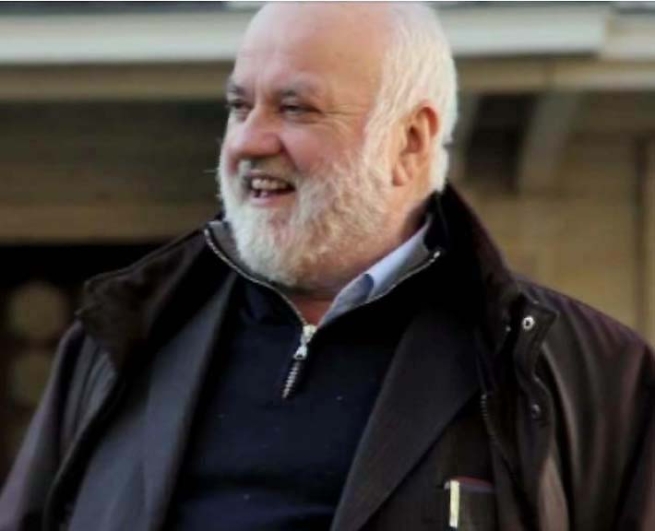It is at the "Generala", today the Juvenile Penal Institute "Ferrante Aporti" that Don Bosco, sent by his spiritual father Saint Joseph Cafasso, imagines his Preventive System. While visiting and talking with the "disheveled and dangerous boys" and listening to the concerns of children without a family of reference, the saint from Turin conceived the idea of the oratory. And that is why since then the chaplains at the "Ferrante Aporti" have always been Salesians.
Like Fr Ricca, struck down by illness shortly after the end of his ministry of over 40 years as chaplain of the Juvenile Penal Institute. Fr Domenico, "Don Mecu" for all his boys, spent his entire life as a priest with the young inmates as Don Bosco wanted his Salesians to be: courtyard priests, playground priests. For this reason, he chose to title the interview about his experience as a Salesian at the Turin juvenile prison – a book whose copyright proceeds were donated entirely for scholarships and work for restricted children – "The courtyard behind bars: my oratory at Ferrante Aporti" (Marina Lomunno, Elledici, Turin 2015).
Because "Don Mecu" was at Ferrante in the style of the oratory priest , and just as he had learnt as a young priest to be in the courtyard informally chatting with the boys, so too was he when the young inmates were guilty of serious offences. "When I opened the oratory" says Fr Ricca in the book just quoted "I put myself as I did at ‘Ferrante’ on the door: ‘Good morning, ciao’... I introduced myself... ‘I'm the chaplain; if you need me come looking for me.’ And after three days when I saw the boy again and I said, ‘But you come from such and such a town, you maybe you know the priest...’ I had no idea how to be a chaplain there. The only thing was to do the things I did in the oratory." And it worked: "Oratory priest, a priest to chat with...and things went on from there."
"In every young person, even the most unfortunate, there is a point accessible to the good and the primary duty of the educator is to seek this point, this sensitive cord of the heart and to profit from it." So said Don Bosco. And his words are the summary of Fr Ricca's life, dedicated to the redemption of boys born in the "wrong cradle" as he used to say to find "that accessible point" which he could leverage to fight weakness so a boy could leave the "disheveled and dangerous boy" label behind.
In Turin he was a point of reference for those dealing with youth problems, as he was for youngsters whom he accompanied even after the end of their sentence, and also for all the staff at "Ferrante": guards, workers, educators, management, volunteers who animated the Mass in the chapel every Sunday that he himself had reopened by placing a statue of Don Bosco there, thanks to a donation from friends.
And, precisely on the occasion of the Year of Mercy proclaimed by Pope Francis, it was thanks to the invitation of Fr Ricca that the then Archbishop Cesare Nosiglia, opened a Holy Door also in the chapel at "Ferrante", in order to make the boys feel a living part of the Christian community. And in that celebration, as in the Sunday Masses presided over by Fr Ricca, all the young people participated, the majority Orthodox and Muslims.
The Rector Major of the Salesians, Cardinal Ángel Fernández Artime, learning of the news of his death, recalled him saying, "What can we say about our dear confrere Don Mecu? It's hard because you can't reduce a person's life to a few lines. But let me choose one aspect among many. Our father Don Bosco had known the harsh reality of prison beside his teacher and spiritual guide Saint Joseph Cafasso at the ‘Generala’, telling the Lord that he would do everything possible to prevent the boys from arriving in prison. So Don Bosco founded the first oratory in Valdocco and everything started from there. Today we say goodbye to a son of Don Bosco, our dear Don Mecu, who spent his whole life as a Salesian accompanying the young people who ended up at the ‘Ferrante’ where Don Bosco and all of us would never have wanted them to enter. Don Mecu truly loved young people, especially ‘those who had less’ and did so out of Love for the Lord Jesus and with a heart that imitated Don Bosco's own heart."


